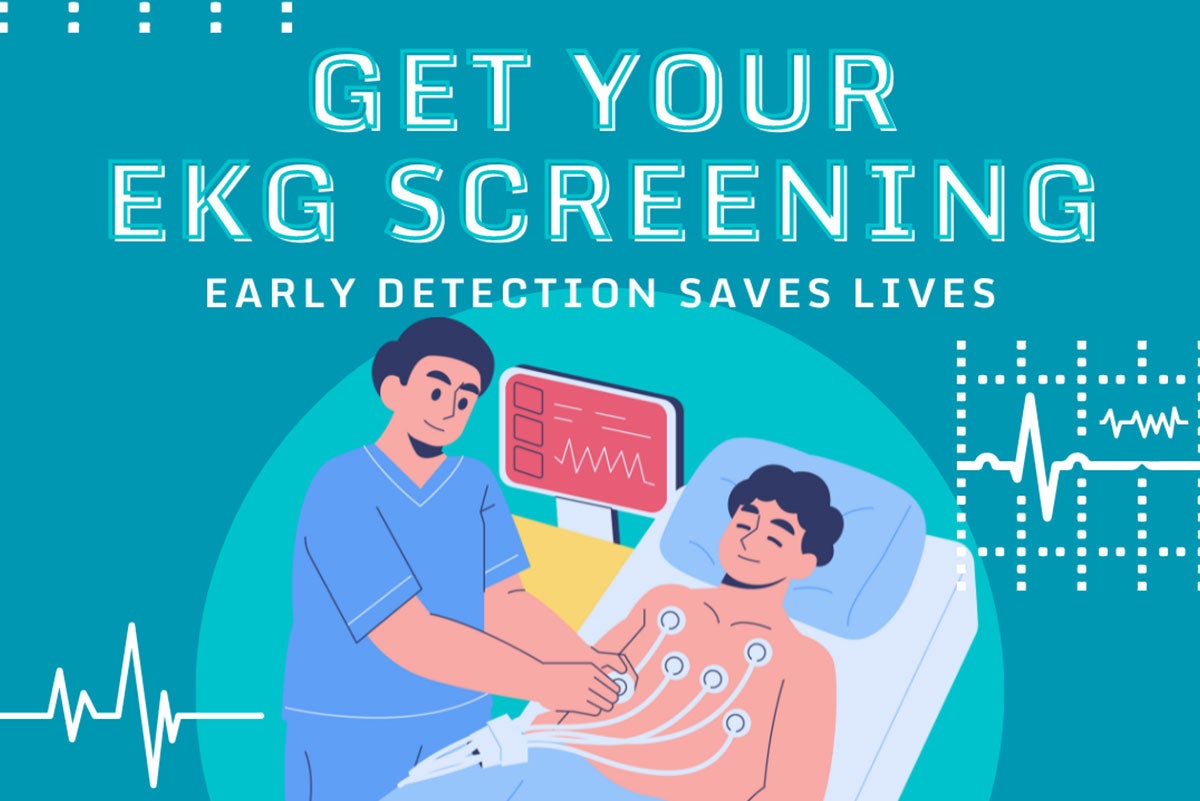A Guide to EKG Screenings at St. Mary's Healthcare System
September 18, 2023An Electrocardiogram (EKG) is a vital diagnostic tool that provides a detailed look into the electrical activity of your heart.
Are you concerned about your heart health or want to take proactive steps to ensure you're in the best shape possible? We can help with quick, convenient, and highly informative EKG screenings. In this blog, Page Meadow, Radiology and PACS Manager, answer burning questions about EKGs and why this simple test could be a life-saving decision for you.
What exactly is an EKG?
An Electrocardiogram (EKG) is more than just a routine test; it's a vital diagnostic tool that provides a detailed look into the electrical activity of your heart. It can detect abnormal rhythms and be a crucial first step in diagnosing potential heart blockages or other severe conditions. In a world where heart disease remains a leading cause of death, an EKG can be your first line of defense.
How reliable is an EKG for diagnosing heart conditions?
When it comes to identifying arrhythmia, EKGs are your go-to diagnostic tool. For blockages, the results can vary. A stress test with continuous EKG monitoring may be recommended if abnormalities appear for a more comprehensive view. This additional step can be crucial in identifying long-standing, slow-developing blockages that might otherwise go unnoticed.
How do you prepare for your EKG?
On your test day, skip the lotion and powder to ensure the electrodes stick properly to your skin. Contrary to popular belief, caffeine is okay; it aims to capture your heart's activity naturally. All you need to get started is a doctor's order for scheduling and registration. Results are electronically sent to your doctor for review.
Who should consider an EKG?
While EKGs are beneficial for everyone, certain groups should prioritize getting one. If you're experiencing chest pains, are over 40 and preparing for surgery, have a family history of heart conditions, or are a smoker, an EKG isn't just advisable—it's vital.
What should you expect during an EKG?
The screening is surprisingly quick, usually taking a few minutes. Twelve electrodes with a special conductive gel are placed on your legs, arms, and chest. These electrodes capture your heart's electrical activity, providing invaluable data for your healthcare provider
Don't leave your heart health to chance. Talk to your primary care provider, schedule your EKG screening at St. Mary's Healthcare System today, and take the first step in proactive healthcare. Are you in need of a primary care provider? We got you! Complete the form on this page, and we will find you an appointment within seven days.

